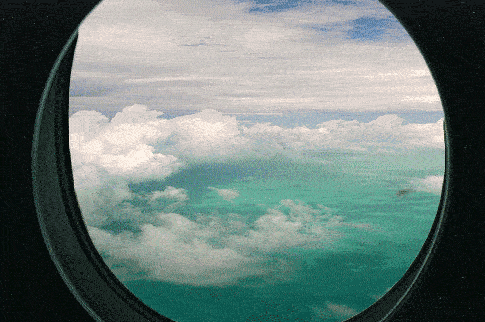
Flying from Tokyo to London brings you in an arc with the curvature of the earth. Up over Russia, and down through the Nordic states, in total it covers around 10,000 kilometres, almost half of the globe.
It's a journey that covers more of the world than most people in history could have dreamed of seeing. While you sit there in your tiny world that has been reduced to the size of a foe leather chair, you are presented with a screen displaying just how far you have really gone.
You'll briefly clip the top of China, carefully avoiding North Korea as it hides away in its own world. By now a little one centimetre line is telling you you're a thousand miles from that cozy ramen place where you ate dinner, another centimetre and you’re two-thousand miles from the hostel bed you woke up in that morning.
Seven miles below you are the frozen plains of sub artic Russia, the Ural Mountains, you wonder what would it be like if the plane had to land, or you crashed in that horrifying vast wilderness. "I'd have gone anywhere, except the Urals" Nicholas II, last Tsar of Russia.
You slide on though; eight hours and three inflight movies later you check again, now the wilderness is a memory, and you're getting close to Finland. Soon you'll land and someone will ask how the flight was, and you’ll say it was fine.
Fine is not much to say for a journey that took half the world. Did you visit those places below you? A benevolent sky tourist at the toes of god? Seven miles from Anabar is pretty close after all. I think it's fair to say I have been to those places, and by proxy I have been those places.
We are all worlds traveling through worlds; our planet certainly is as it moves through the stars. To those around us we are jet streams, carbon footprints, nuclear shadows, memories and words.
As humans we will always be limited, but the trails we leave are the true objective. Perhaps that gives some weight to the marks we leave on the world, and the world that becomes those marks.